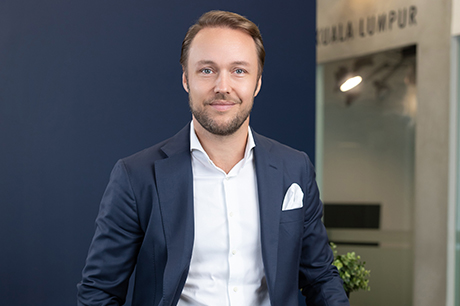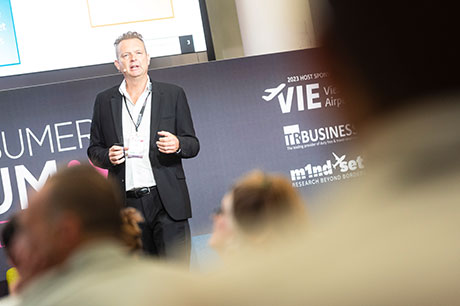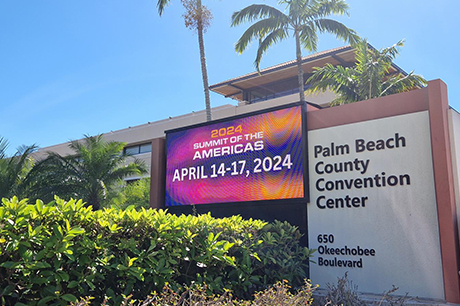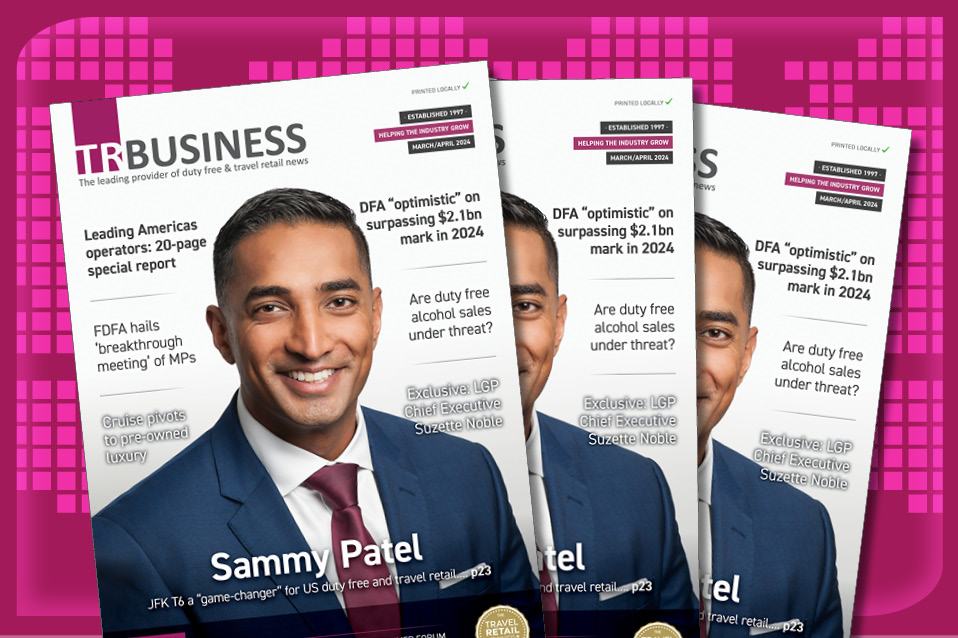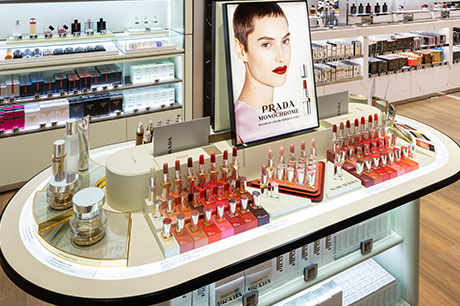Former US Secretary of State Colin Powell: ‘We need a free-flow of people’
By Kevin Rozario |

As the keynote at yesterday’s 30th TFWA World Exhibition & Conference in Cannes, US army veteran, General Colin L. Powell and former Secretary of State in the Bush administration during the 2003 invasion of Iraq, gave a fascinating account of his time in global politics and the strategies that have defined different administrations.
From the two Iraq wars, the threat of communism and the Cold War, to the terrorist attacks of September 11, the current rise of Isil (Islamic State of Iraq and the Levant) in parts of Iraq and Syria, and the crisis in Russia-Ukraine, Powell presented his summarised world view and the threats therein.
But his over-riding message to the audience was that despite the urge – especially in the US – to protect and secure borders “we must make ourselves an open and welcoming place”.
That said, he explained how – now that he is no longer flying as a government VIP – he is often subjected to ‘extra diligent’ security scanning by “an honours graduate of the TSA wanding school”. “But I can’t get mad because I put the system in place,” he concedes.
 Nevertheless, he comments: “If we become too afraid, then the terrorists have won. We need a free-flow of people and customers. It is time to move on from 9/11. You can’t stand still or you will be left behind.”
Nevertheless, he comments: “If we become too afraid, then the terrorists have won. We need a free-flow of people and customers. It is time to move on from 9/11. You can’t stand still or you will be left behind.”
That sentiment he also applied to technology and to how the Cold War had progressed – and possibly been protracted by an inability to change. When Mikhail Gorbachev came to the table with his policies of glasnost (openness) and perestroika (restructuring), the Americans were not keen to alter the status quo. “A lot was invested in our relationship with the Soviet Union as the enemy,” Powell said.
Eventually, however, in the face of the diminished Soviet threat he cut the military budget by 25% which resulted in a massive transformation of the US defence industry with a number of resulting mergers.
A NEW UNCHARTERED PHASE
With the politics of Cold War ‘containment’ as he put it, now binned, Powell explained how the world had moved into a new and unchartered phase with the rise of tribal and religious differences on the one hand – and former Soviet states queuing up to join Nato on the other. From the pressure cooker containment tactics of old, had come new pressures to stability.
But Powell did not see these as overly problematic compared to the spectre of nuclear war, although he admitted: “It was easy to explain the USSR. It is much harder to do that with the Middle East and other conflicts.”
 He dismissed any threat from China based on the fact that “they hold $1.3 trillion of US paper and they are not going to risk that”. He said that while everyone talks about the numbers of middle class Chinese travellers shopping for goods, there remain 800 million still in poverty, and that continues to be a challenge for the Chinese administration – but a positive for duty free and travel retail in the long term.
He dismissed any threat from China based on the fact that “they hold $1.3 trillion of US paper and they are not going to risk that”. He said that while everyone talks about the numbers of middle class Chinese travellers shopping for goods, there remain 800 million still in poverty, and that continues to be a challenge for the Chinese administration – but a positive for duty free and travel retail in the long term.
Confronted by conference moderator and presenter of BBC current affairs show Hard Talk, Stephen Sackur (right), about making the case for invading Iraq, Powell was dismissive: “I explained the case, I did not make it,” he said, “based on information from 16 intelligence agencies.”
While a life-long Republican, Powell reiterated his stance on open societies and the view that restricting movement would be unwise. “Immigration fuels us. The minorities in the US will be the majority by 2042,” he said quoting data from the US Census Bureau.
He concluded with an anecdotal lesson about leadership in which he made the point that, in an organisation, “there are no unimportant people” and that they all contribute to the wellbeing of the whole. “People are the valuable asset, not the shops or the counters – and they need a purpose… that they serve other human beings. Trust [in those people] is the essence of good leadership.”
Alcohol insights: Conversion up, spend down in Q4
Conversion of visitors in the alcohol category in duty free has risen to 54% in Q4 2023,...
Heinemann Asia Pacific makes breakthrough in New Zealand at AKL
Heinemann Asia Pacific is set to enter the New Zealand market with three new retail concepts at...
Men buy and spend more in travel retail says new research by m1nd-set
Men have a higher conversion rate and spend more when shopping in travel retail, says new...
-
 International,
International,Alcohol insights: Conversion up, spend down in Q4
-

-


In the Magazine
TRBusiness Magazine is free to access. Read the latest issue now.

 Trbusiness. The travel retail Trbusiness. The magazine for global retail and duty free professionals.
Trbusiness. The travel retail Trbusiness. The magazine for global retail and duty free professionals.
